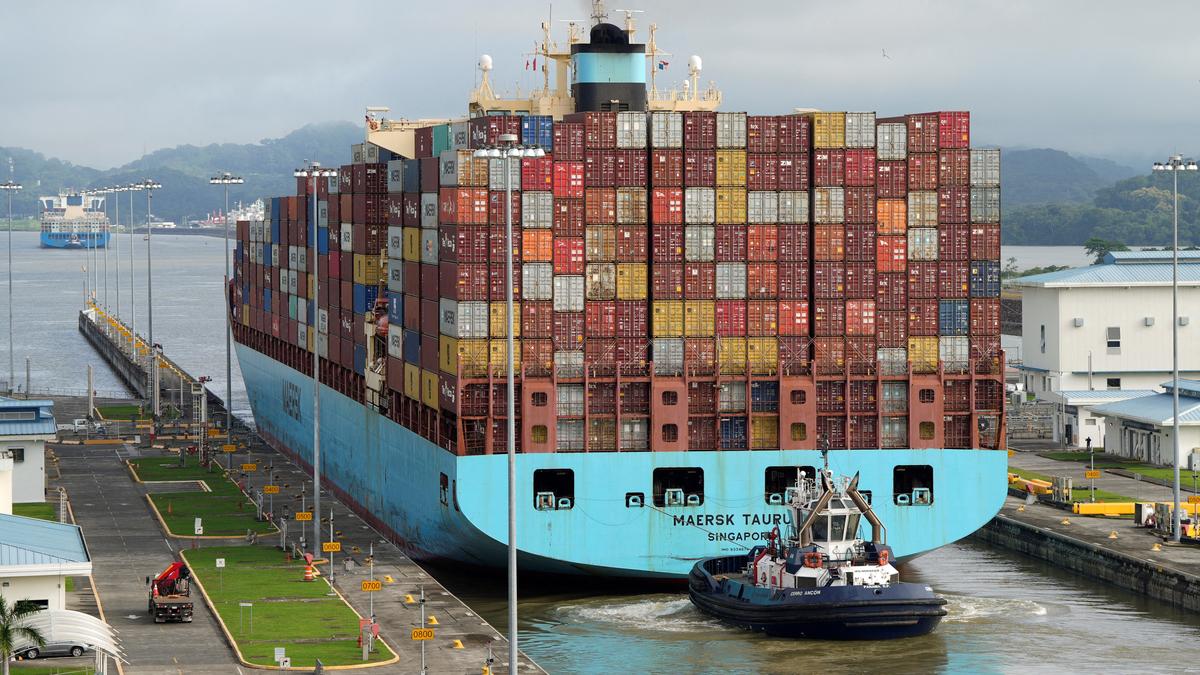Hold onto your hats, folks, because the Panama Canal is at the center of a major political storm! Donald Trump, never one to shy away from a headline-grabbing statement, recently accused Panama of unfair fees for US ships using the canal, even hinting at reclaiming control of the waterway. This dramatic declaration has sent ripples through the global maritime industry and sparked a debate about US influence and China's growing presence in the region. Get ready to dive into the details of this explosive situation, its implications for global trade, and what this could mean for the future of this vital shipping route.
Trump's Panama Canal Power Play: A 'Complete Rip-Off'?
Donald Trump's recent outburst regarding the Panama Canal wasn't subtle. He labeled the fees charged by Panama as "ridiculous," a "complete rip-off," and even threatened to demand the canal's return to US control. This strong rhetoric is typical of Trump's outspoken style, but the implications of such a move are significant, impacting not just the United States but the global economy and international relations.
Unfair Fees or Fair Market Value?
The heart of Trump's argument is the allegation of "unfair" fees levied by Panama. However, it's crucial to consider Panama's perspective. They argue that they are managing a critical piece of infrastructure that's responsible for a significant chunk of global maritime trade, earning record revenues of nearly $5 billion last year. While Trump views the canal fees as unjust, from Panama's viewpoint, they are charging for vital access to one of the world's most critical trade routes. The argument centers around what constitutes "fair market value" in this complex geo-political setting. Analyzing the economic data and comparing fee structures to other major international waterways could provide some objective context.
The US-Panama Relationship: A History of Transfer
The Panama Canal's ownership has always been a delicate political topic. Originally constructed by the US, its transfer to Panama under Jimmy Carter was a significant milestone in the bilateral relationship. This transition represented the US respecting Panama's sovereignty, yet Trump's proposal to regain control seems to disregard the significance of this moment. It highlights a broader debate around the legacy of US foreign policy in Latin America and whether it has successfully embraced Panamanian sovereignty. Examining the nuances of the 1977 agreement and considering potential violations that might merit renegotiation are vital elements in resolving the current situation.
The Geopolitical Implications: China's Growing Influence
Trump's statement also highlighted growing concerns over China's influence near the Panama Canal. With China's Belt and Road Initiative expanding trade throughout Latin America, the implications of increasing Chinese influence in the region warrant further scrutiny. It isn't just about the canal itself, but about broader concerns for global maritime trade and power dynamics. This also includes issues of strategic access and implications on regional and international economic collaborations. Considering various perspectives, we explore whether increased Chinese involvement inevitably poses a threat to US interests or if it can be viewed as potential economic opportunity.
China's Strategic Presence: Threat or Opportunity?
China's growing trade presence in the region must be understood in the context of their massive investment in the area's infrastructure, notably their extensive port-building endeavors. While Trump frames it as a threat to US interests, analyzing trade routes and identifying any imbalances could present a less alarmist viewpoint. Considering China's investments not only in the Panama Canal region but also other parts of Latin America helps frame this issue with nuance and avoids framing China's role solely as one of direct economic competition or political maneuvering.
The Economic Realities of Global Maritime Trade
Around 5% of global maritime traffic flows through the Panama Canal. Understanding the economic impact on the US and other nations dependent on this key artery of maritime commerce is imperative. For businesses trading between Asia and the US East Coast, using the Canal provides substantial time and cost savings compared to going around Cape Horn. Considering potential alternatives and disruptions on the global trade system in case the canal was temporarily disrupted or closed down is equally important.
The Way Forward: Diplomacy and Economic Solutions
Instead of outright threats, a more productive approach might involve diplomacy, open negotiations, and collaborative solutions. Focusing on resolving disagreements, perhaps focusing on issues like trade tariffs and investment policies, may yield greater success than making outright accusations of exploitation. Such collaboration could build more constructive relationships among involved entities. Furthermore, economic and geopolitical analyses to understand how the canal fits within the broader framework of global maritime commerce could prove very valuable in mediating this diplomatic stand-off.
Solutions Beyond Confrontation
Addressing Trump's concerns about fees requires constructive negotiations between the United States and Panama. Negotiating better and mutually-agreeable terms could eliminate the need for such hostile rhetoric. Focusing on economic cooperation between countries rather than making unilateral threats could result in mutual benefit. A constructive conversation needs to happen, based on transparency and mutual respect.
Take Away Points
- Donald Trump's comments on the Panama Canal highlight significant concerns regarding the costs of US maritime operations, leading to an increasingly tense geopolitical situation.
- China's growing economic and strategic influence in the region requires a measured response, prioritizing open negotiation and collaborative problem-solving over inflammatory language.
- Navigating this situation effectively necessitates prioritizing diplomatic efforts to build upon pre-existing agreements and foster long-term economic solutions to satisfy all parties involved.
- Analyzing the historical relationship between the US and Panama, including past economic agreements and diplomatic protocols, adds vital historical context, contributing toward more constructive discussions around mutual agreements.




